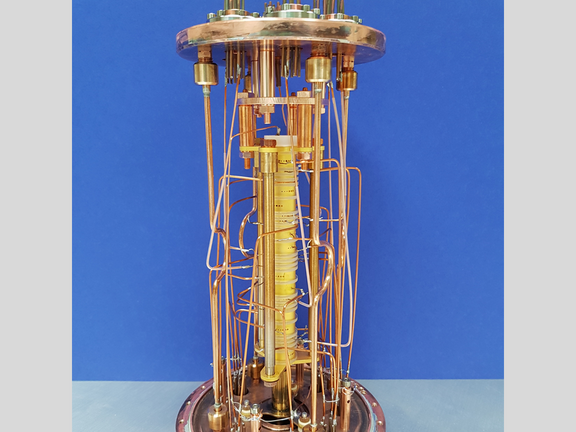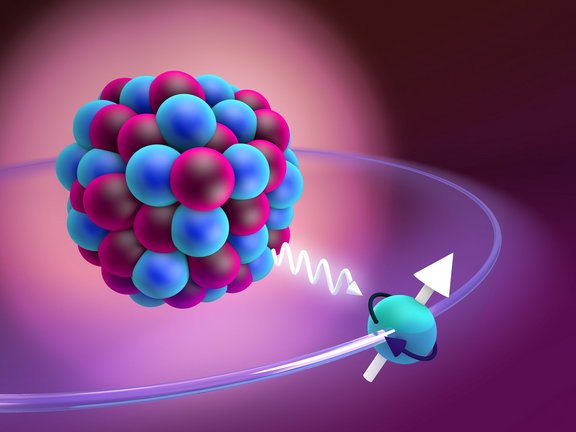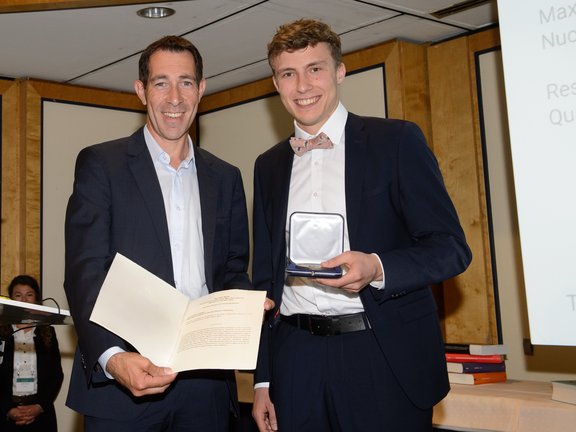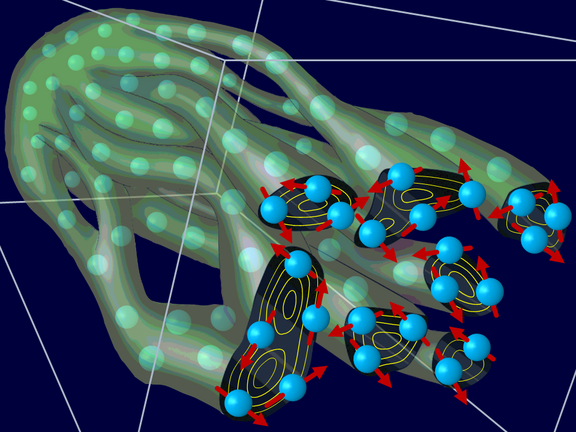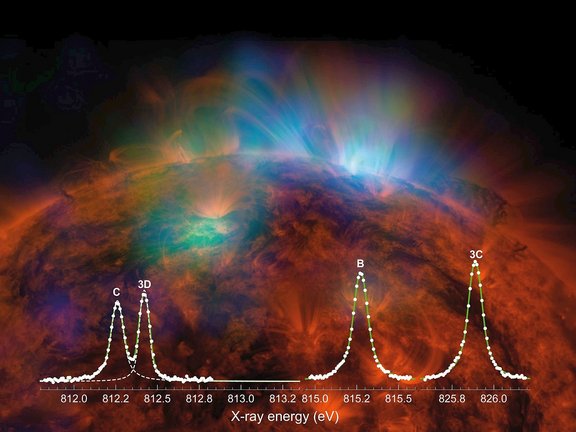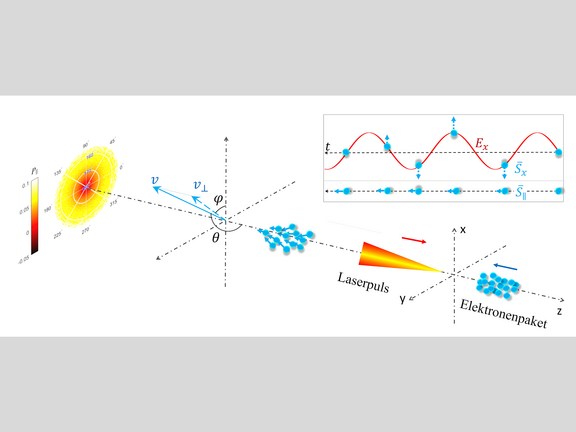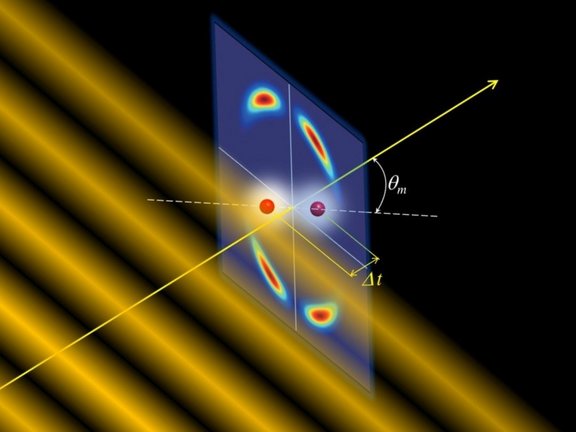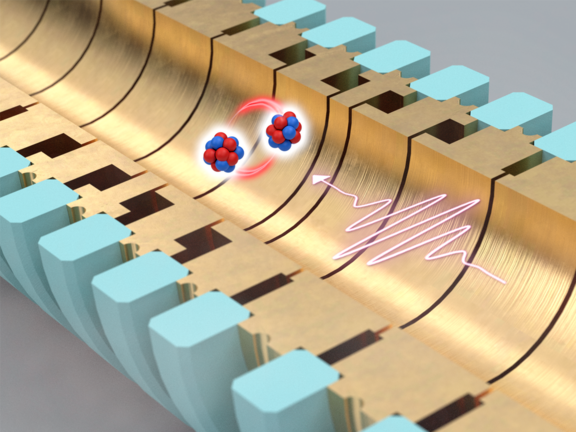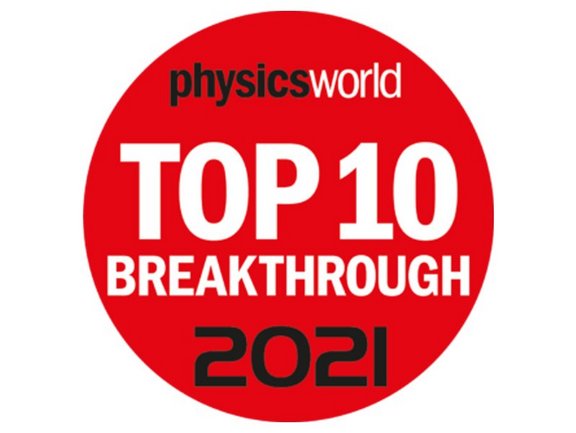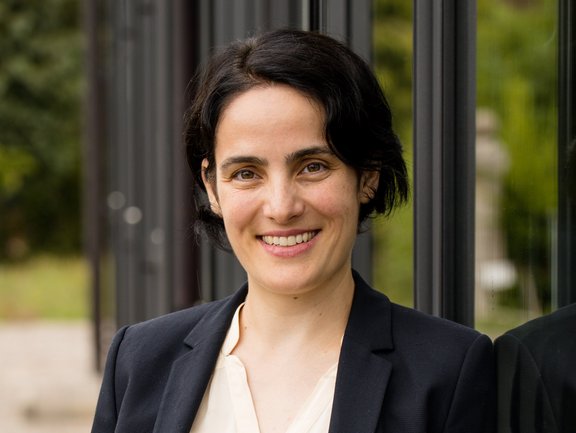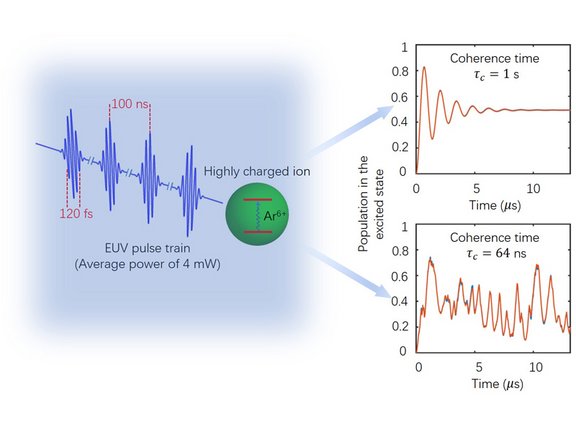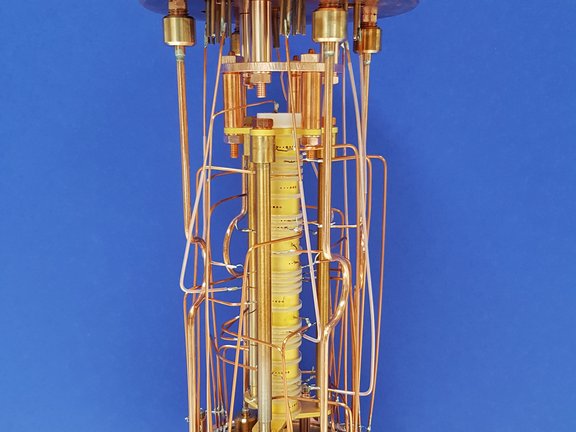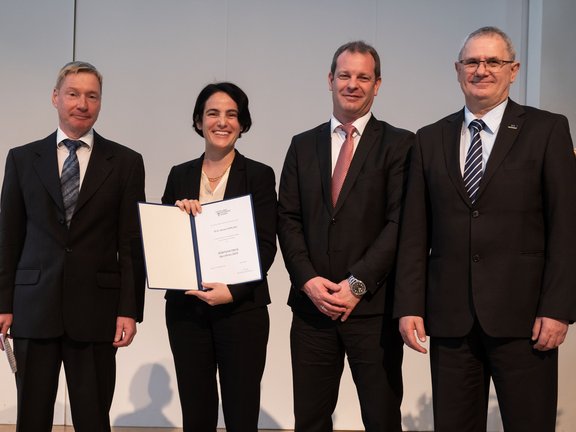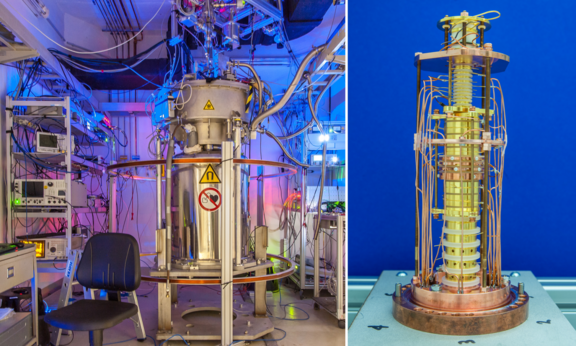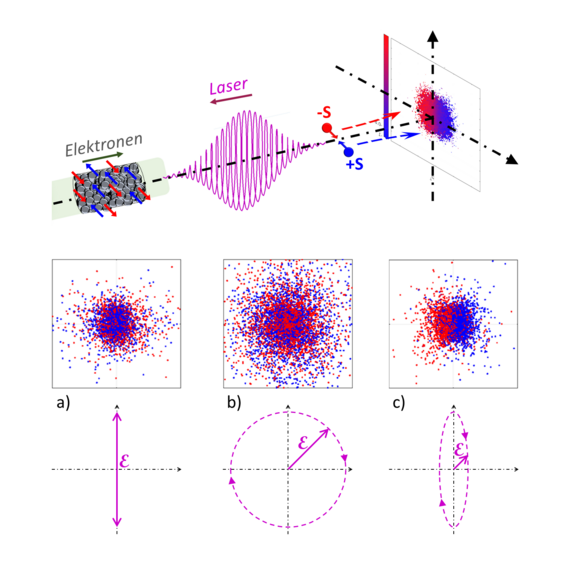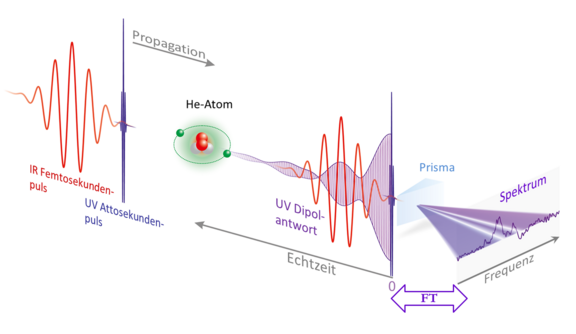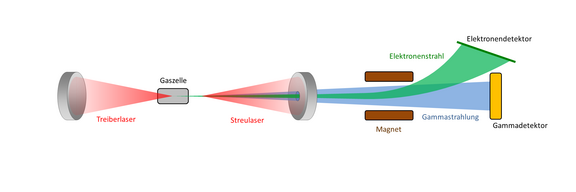News Division Keitel
New Managing Director at MPIK
At the turn of the year, Honorarprofessor Dr. Christoph H. Keitel on a rotational basis took over the Institute management of MPIK. This is his second…
A slingshot for electrons in astrophysical plasma shocks
A group of the theory division at MPIK identified a slingshotlike electron injection process in preturbulent relativistic plasma shocks distinct from…
Towards the next-generation atomic clock
Joint experimental-theoretical study at MPIK identifies a metastable state in highly charged lead
Precise testing of quantum electrodynamics
Measurement of the g factor of the electron in hydrogen-like tin confirms the standard model of particle physics under extremely high electric field…
Dominik Lentrodt recieves Otto Hahn Medal
PhD student of the MPI for Nuclear Physics honored for outstanding doctoral thesis
Electron polarization for probing plasma current filamentation instability
Using particle-in-cell simulations scientists from the theoretical quantum dynamics division at MPIK showed that electron radiative polarization…
Christoph Keitel receives the Lamb Prize 2023
The Max Planck Institute for Nuclear Physics congratulates Prof. Dr. Christoph Keitel on receiving the Willis E. Lamb Award for Laser Science and…
Antonino Di Piazza appointed to the University of Rochester
PD Dr. Antonino Di Piazza has accepted a call to a full tenured professorship at the University of Rochester in NY, USA, and as distinguished…
Suitable polarization of ultrarelativistic electrons for high-energy experiments
High-precision high-energy physics at accelerators demands longitudinally spin-polarized electron beams, e.g., the Q-weak experiment at Jefferson Lab…
Molecular double-slit and quantum tunnelling in intense laser light
When a light wave hits a double-slit, a characteristic pattern of bright and dark stripes appears behind the obstacle, generated by constructive or…
Quantum electrodynamics tested 100 times more accurately
Using a newly developed technique, scientists at the Max Planck Institute for Nuclear Physics (MPIK) in Heidelberg have measured the very small…
How magnetic is helium-3?
In a joint experimental-theoretical study, physicists at the Heidelberg Max Planck Institute for Nuclear Physics (MPIK), together with collaborators…
MPIK twice among the finalists for “Breakthrough of the Year 2021“
Both the work on coherent control of nuclear excitations with suitably shaped X-ray light and the new method for sympathetic laser cooling of protons…
Adriana Pálffy-Buß appointed to the University of Würzburg
PD Dr. Adriana Pálffy-Buß has accepted an appointment to a W2 professorship in theoretical quantum information and quantum optics at…
Important measuring method of neutrino physics on the test bench
With precise mass measurements and highly accurate calculations, a team led by MPI for Nuclear Physics has now succeeded in independently testing the…
X-ray double flashes control atomic nuclei
A team of researchers from the Max Planck Institute for Nuclear Physics in Heidelberg has coherently controlled nuclear excitations using suitably…
The coherence time of extreme ultraviolet frequency combs
Highly charged ions as a stopwatch
Adriana Pálffy-Buß in das Heisenberg-Programm aufgenommen
Die Deutsche Forschungsgemeinschaft (DFG) hat Privatdozentin Dr. Adriana Pálffy-Buß in das Heisenberg-Programm aufgenommen. Das nach dem…
New measurement exacerbates old problem
Two prominent X-ray emission lines of highly charged iron have puzzled astrophysicists for decades: their measured and calculated brightness ratios…
Quantum jump tipping the balance
Measuring tiny differences in mass between different quantum states provides new insights into heavy atoms
Highly charged ion paves the way towards new physics
Orbital crossing and optical clock transition detected in Pr9+
Adriana Pálffy-Buß erhält Röntgenpreis
Verleihung im Rahmen eines Akademischen Festakts der Justus-Liebig-Universität Gießen
On the way to a nuclear clock
Physicists have measured the energy released when the lowest known metastable state of the thorium-229 nucleus decays to the ground state. This is a…
Erste Resultate des neuen ALPHATRAP-Experiments
g-Faktor des gebundenen Elektrons in borartigen Argon-Ionen mit höchster Präzision gemessen
Laserblitze für polarisierte Elektronen- und Positronenstrahlen
Simulationsrechnungen zeigen neue Verfahren zur effizienten Polarisation
Hertha-Sponer-Preis für Adriana Pálffy-Buß
Für ihre wegweisenden theoretischen Untersuchungen von Quanteneffekten in der Wechselwirkung von Röntgenstrahlung mit Atomkernen erhält PD Dr. Adriana…
Zeitmessung ohne Stoppuhr
Volle Zeitabhängigkeit der Antwort eines Atoms auf starke Laserfelder durch Spektralanalyse extrahiert
Intensives Licht verlangsamt hochenergetische Elektronen
Evidenz für Quanteneffekte der Strahlungsrückwirkung


